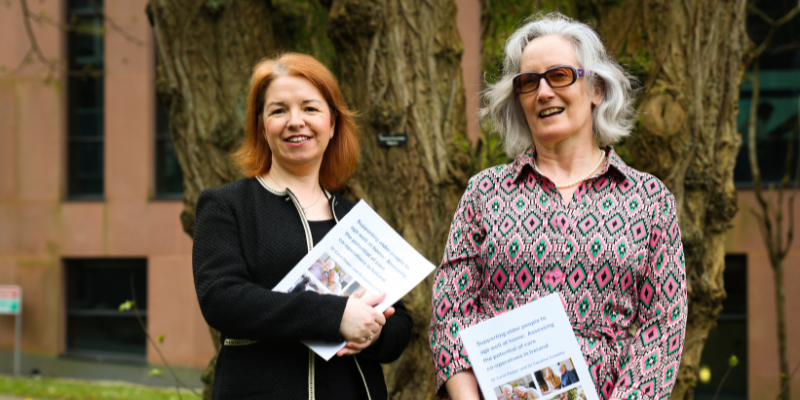
Home care co-operatives could play a large role to help meet the growing needs of Ireland’s older people, a new report outlines today.
A care co-operative is an enterprise that provides care services and is owned and controlled by the people who use those services and/or work in the organisation. Their business model is not designed to produce a financial profit but to generate a social dividend by providing access to high-quality care and more fulfilling roles and better quality jobs for care workers. Currently there are just two organisations operating in Ireland that align with the co-operative model but now a new University College Cork (UCC) report outlines the significant role care co-operatives could play as Ireland’s population ages.
The CO-AGE study, which will be launched today (Friday 22 March) in UCC, focuses on exploring the potential offered by the co-operative model to empower older persons, family carers, and professional care workers to co-create high quality home care. In Ireland, most older people prefer to remain in their own homes, or, at least, in their own communities rather than in institutional settings, as they age. Projections from the Central Statistics Office (2018) indicate that between now and 2051, the population in the 70+ age group is likely to more than double to reach 1.2 million.
Led by Dr Carol Power and Dr Caroline Crowley, Centre for Co-operative Studies in the Cork University Business School, in association with ISS21 (The Institute for Social Sciences in the 21st Century) the CO-AGE study highlights examples of two innovative home care co-operatives in Ireland and the UK. These are the multi-stakeholder model and the worker co-operative model. These models are designed to provide the best quality of care for older people and working conditions for carers, with all profits reinvested into the business. This set up provides care to older people and gives them a say in how their care is provided.
Dr Carol Power, lead researcher, said: "As a society, we need to consider how we can meet the future care needs of our ageing population. As the Commission on Care for Older People begins its work, we need to shine a light on innovative models like care co-operatives, which can make care work significantly more attractive and, most importantly, empower the people who give and receive care."
Additional key recommendations from the CO-AGE report include:
Raising awareness of the co-operative model, with advocacy groups for older people, family carers, and care workers playing a key role.
A dedicated advisory service, working in partnership with the health services, social finance organisations and other stakeholders, to support emerging care co-operatives.
Access to training for care workers to support innovative work practices that provide safe, high-quality care.
The development of state-supported pilot actions to trial the development of care co-operatives. The research was funded by the Irish Research Council’s New Foundations scheme and conducted in partnership with Age Action.
Age Action’s research officer Mary Murphy said, "Age Action works to support older persons to have choice and control in their own lives, which for the majority will mean remaining in their homes as they age. Inadequate care is a major barrier to ageing in place, and stems from our society under-valuing care, the people who need it, and the people who provide it. The quality of care for older persons and the quality of work for professional carers are interlinked, and this research explores a potential means of improving both."

